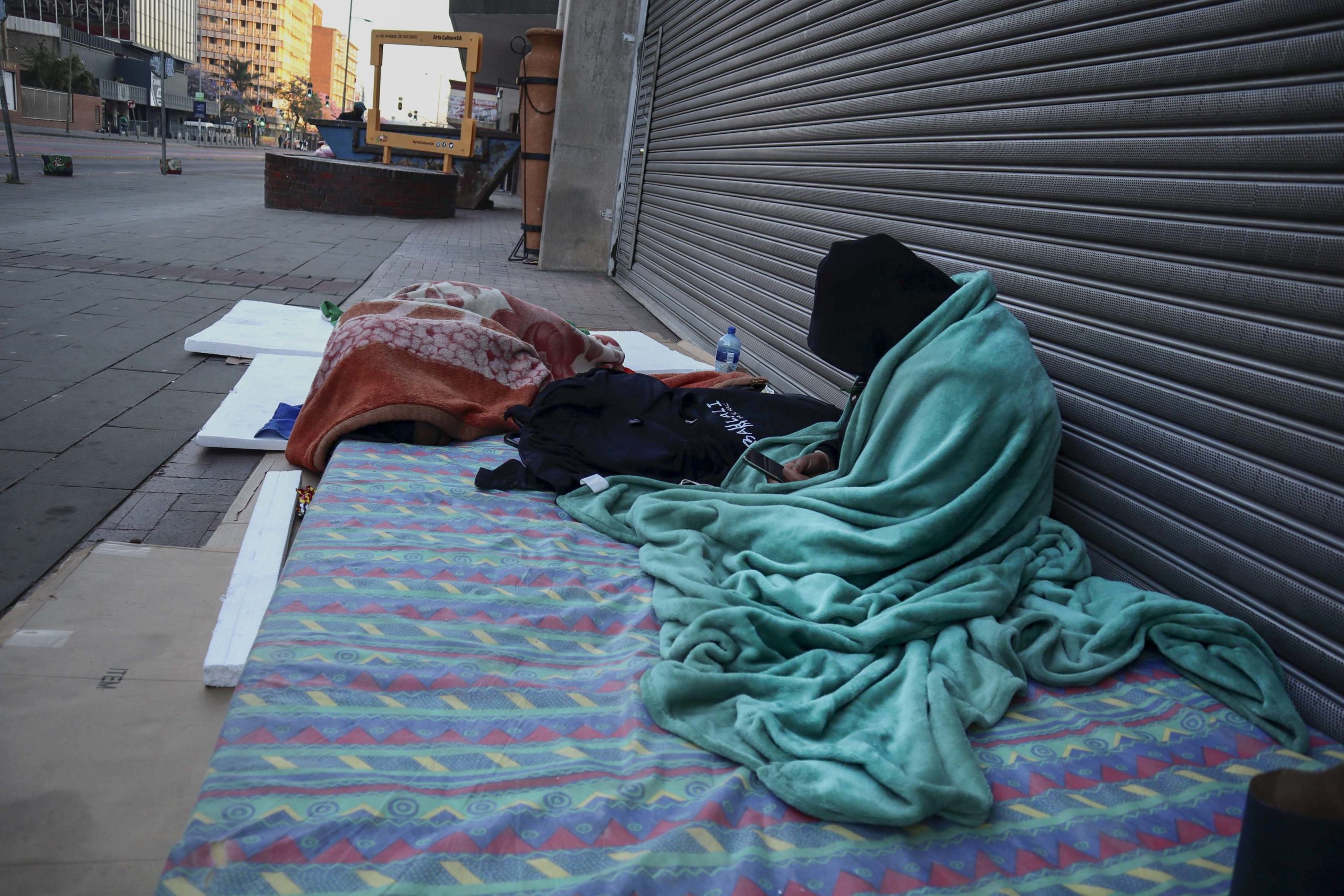State shows naked contempt for cultural workers
The attack on a woman artist during a picket illustrates just how uncaring, dismissive and heavy-handed government institutions like the arts ministry have become.
Author:
9 November 2021

It’s unclear what security threat the police outside the Department of Sport, Arts and Culture in Pretoria believed was posed by opera star Sibongile Mngoma and a small group of fellow protesters on November 2. Perhaps they feared she would sing a high C and shatter the minister’s windows.
Whatever their belief – or their orders – the result was manhandling so rough and callous that Mngoma’s blouse was torn off.
Mngoma and the other activists had been outside the building as part of a long-running organisational protest by pressure group Im4theArts and its allies against the failure of the department and its minister, Nathi Mthethwa, to support performing artists whose work prospects had been devastated by Covid-19 and lockdowns.
The protests began with a 60-day occupation of the National Arts Council’s premises in early March. The council, an entity of the department, was at that stage unable to answer multiple questions about the disbursement of a R300-million presidential economic stimulus package ostensibly intended to protect and grow creative livelihoods.

When that initial occupation ended, Mngoma declared that other government arts institutions, the department included, were next in line. Since then, both the grassroots Theatre and Dance Alliance and the department itself have conducted inquiries into the stimulus funding. Both concluded that things had gone seriously wrong – but the department’s full report is still unpublished. Its press statement is silent on how, despite supposed ministerial oversight, the arts council could have erred so gravely, and it says nothing about procedural and institutional weaknesses.
That led artists’ pressure groups to escalate their demands for Mthethwa’s dismissal. (He had been redeployed to the arts department in 2019 from his previous role as minister of police, a position he occupied at the time of the Marikana massacre.) For several days in late October, Mngoma slept rough outside the department’s office. She ended her protest when promised a meeting with Mthethwa on 2 November.
Respect, transparency and assistance that meet cultural workers’ real needs was all the protesters in Pretoria were asking. A few days previously, when she still believed the department would keep its promise of a meeting, Mngoma told a journalist: “This is the right time for artists to pick themselves up. What people are missing is that before lockdown artists were making money independent of the government. We are not asking for grants, we are asking for enablement.”
At the very last moment, that meeting was cancelled. It was when the artists picketed again outside the building, adding this disrespectful gesture to their other grievances, that the police dragged Mngoma away, bruising her and shredding her blouse in the process
Ominous signs
The nature of the assault – for that is what it was – and its timing and context tell us a great deal about current official attitudes to cultural work.
First, the narrative of unanswered calls and broken promises about meetings and transparency that Im4theArts recounts is not unusual. In her article on the protests for the Sowetan, journalist Patience Bambalele noted: “Presidency spokesperson Tyrone Seale has failed to respond to numerous requests for comment on the matter. He was sent two emails last week. His phone went unanswered and he never responded to a WhatsApp text, despite reading it.”
Elderly veterans of the struggle staging a sleep-in outside the Constitutional Court in Johannesburg on 21 October (with a parallel action in Cape Town) told an almost identical tale about the Ministry of Justice’s apparent disdain for their long-running campaign for just reparations.
In the arts ministry, indeed, attitudes to protests against it have hardened. Initially, protesters were simply ignored. Then, the minister began blaming the victims, accusing those protesting against arts council mismanagement of ingratitude. Now, police violence has been unleashed against them.

Second, the deeply gendered nature of the assault on Mngoma reveals the reality behind the many crocodile tears shed over gender-based violence. Women activists of Abahlali baseMjondolo in KwaZulu-Natal have regularly received similar treatment to Mngoma when going about their normal daily activities in their settlements. The venerable Helen Zille, only the previous day, was roughly frogmarched out of an Eastern Cape polling station by a beefy cop double her size. If the police, supposedly the front line in combating gender-based violence, cannot treat highly visible women with respect in very public situations, it sends a spine-chilling message about what may happen elsewhere.
Third, Mngoma’s assault was in the week of local government elections. The core of cultural recovery is what happens at the local level. A report by the South African Cultural Observatory noted in its recommendations the pressing need to strengthen local cultural life. Yet among the major parties, only one manifesto – and it was not that of the minister’s ANC – devoted any significant space to arts and culture and their local reconstruction. The philistine political disrespect for the arts represented by that absence found its physical manifestation in police roughing up an opera singer less than 24 hours after the polls closed.
Through her pain, Mngoma calmly explained to the media: “They decided to postpone the meeting at the 11th hour. I received a text when I was on my way here from Bloemfontein. I refused to allow that to happen. The cancellation was at the last minute. Now they are harassing us for having this peaceful picket. They have dragged me on the floor, I have bruises.”
The singer maintained her dignity. The forces of the state? Not so much.
